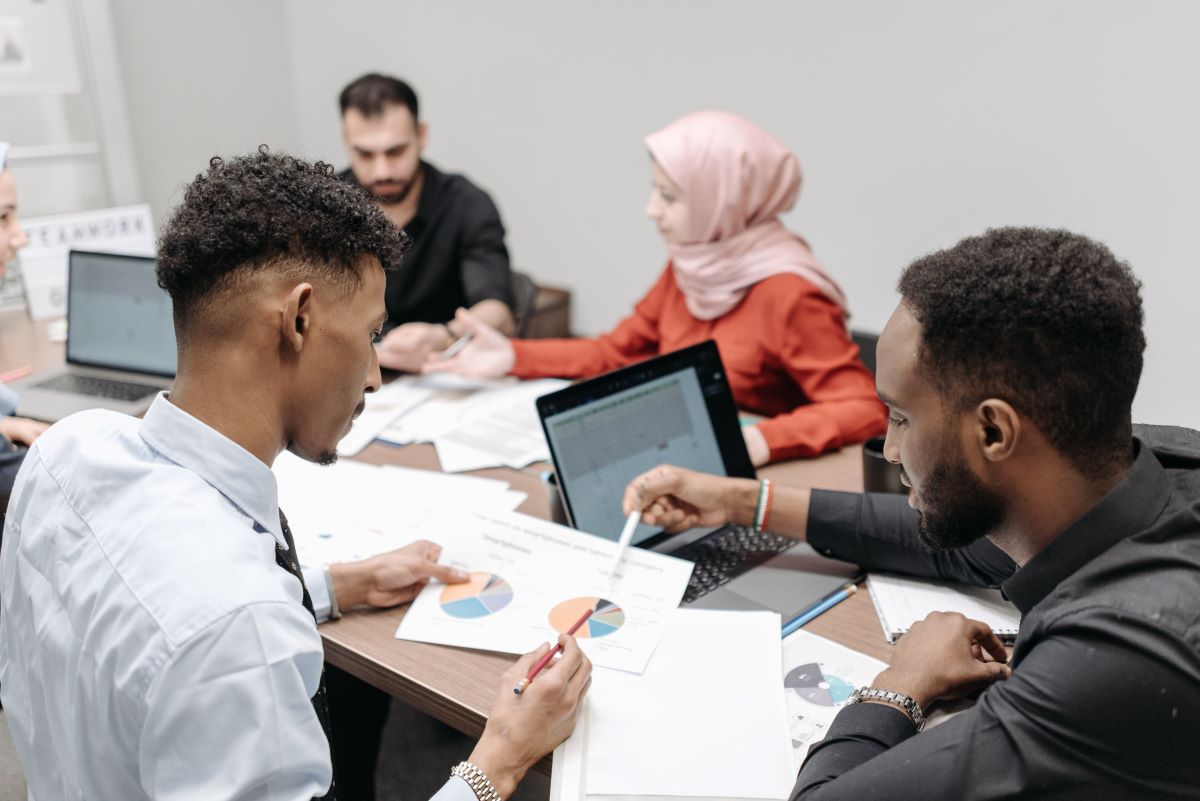First findings from COSMO Study on impact of the pandemic – almost half of young people have accessed no catch-up

The COVID Social Mobility & Opportunities (COSMO) study, led jointly by the UCL Centre for Education Policy and Equalising Opportunities, the UCL Centre for Longitudinal Studies and the Sutton Trust, is the largest study of its kind into the impacts of the pandemic on young people’s life chances. The first findings, published today, provide concerning new insights on this generation’s progress following the disruption caused by the pandemic. The study, which is funded by the Economic and Social Research Council (ESRC) as part of UK Research and Innovation’s rapid response to COVID-19, is following a representative sample of over 13,000 young people across England who were in Year 11 in 2021. Most of the cohort have just begun Year 13 and are due to take A Levels in summer 2023, with others undertaking other qualifications, training and work.
Over three quarters (80%) of the study’s participants believe their academic progress has suffered and half say they are now less motivated to study and learn as a result of the pandemic. 37% of those at state schools feel they have fallen behind their classmates – more than double the figure for independent school students (15%).
As a result of substantial inequalities between schools in remote learning during lockdowns, the study examined opportunities for catch-up learning. Almost half of young people have accessed no catch-up learning at all and a large majority have not accessed tutoring. The most available option – extra online classes – was offered to just half of the study’s participants and taken up by less than a third. When asked whether they have been able to catch up with learning lost during the pandemic, 45% of students disagree while only 36% agree. Almost half (46%) of students at comprehensive schools say they have not been able to catch up with learning, a significantly higher proportion than those at independent schools (27%).
Despite extra tutoring being a core element of the government’s catch-up strategy, independent school students are more likely to have been offered this than those at comprehensive schools (52% vs 41%), and are more likely to have taken part in additional online classes. However, when extra tutoring was offered to those at comprehensives, they were more likely to take this up than their independent school counterparts. Better off families were also more likely to pay for private tutoring when schools re-opened in 2021, with 19% of parents with a child in the least deprived fifth of state comprehensive schools doing so, compared to 4% for those from the most deprived.
The researchers say that support offered for catch-up across all school years in England is three times lower per person than funding provided for the US rescue plan for schools (currently totalling around £4.9 billion compared with a $122 billion rescue plan in the US, the equivalent of about £15.5 billion in England adjusting for population size).
The findings show the pandemic has had a major impact on young people’s future plans. Of those who had previously made plans, almost two thirds (64%) say their education plans have changed because of the pandemic and three in five (60%) have changed their future career plans. Girls, young people from disadvantaged family backgrounds, and those attending state comprehensive schools were more likely than their counterparts to have changed their plans. Young people who had ‘long COVID’ or ill health, who were asked to shield or who experienced economic hardships were also much more likely to have done so.
Examples of changes to plans shared by the Sutton Trust’s COSMO youth panel (not participants of the main COSMO study) include struggling to enter careers in sectors where work experience was unavailable during lockdowns, and reconsidering career aspirations to protect long-term mental health.
Dr Jake Anders, Associate Professor and Deputy Director of the UCL Centre for Education Policy and Equalising Opportunities (CEPEO), and COSMO’s Principal Investigator, said:
“COSMO is providing vital new evidence on the effects of the pandemic on the lives of young people, with strong signs that it has severely widened existing inequalities – this has not been fully addressed by our policy response. And these short-term effects are just the start. We aim to continue following the lives of this cohort over the coming years. Whether or not we think of the pandemic as over, its effects will continue to cast a long shadow, and COSMO will help us to understand this in the years to come.”
Sir Peter Lampl, Founder and Chairman of the Sutton Trust and Chairman of the Education Endowment Foundation, said:
“These findings show that far more needs to be done for young people. While all young people have been affected by the pandemic, there is clear evidence that students from less well-off households have been impacted most. Funding provided so far for catch-up has been a drop in the ocean. It’s less than a third of what is required and it’s at a level three times lower per person than in the US. The government’s education recovery plan must be much more ambitious, or we will blight the life chances of a whole generation.”
Sector Response
Russell Hobby, Chief Executive of Teach First, said:
“Once again, we see clear evidence that the pandemic has had a huge impact on young people’s futures, particularly those from poorer backgrounds. We must act now to safeguard their futures and the prosperity of our country.
“To tackle this – and to truly boost national growth – the government should invest in the education of the next generation. This means weighting funding towards schools serving disadvantaged communities, where it can make the greatest difference. Only then will we ensure every child, irrespective of their background, leaves school with the skills needed to thrive in their future lives and the world of work.”
Dr Mary Bousted, Joint General Secretary of the National Education Union, said:
“The findings in this report lay bare the inadequacy of the Government’s response to the pandemic. Whether it was the slow roll-out of laptops or the failure to heed warnings on increased safety measures for schools, this was a catalogue of errors. A decade of real-terms funding cuts made schools and pupils more vulnerable, undermining pupils’ educational opportunities – particularly in more disadvantaged areas. To compound this error, the Chancellor’s failure to meet the spending recommended for education recovery by Sir Kevan Collins, the Government’s own recovery tsar, led both to his resignation and to severe corner cutting. This betrayed a clear lack of seriousness around Government when it came to young people’s futures.
“Much of this failure stems from the Government’s unwillingness to listen to the profession. They were very slow to come round to schools leaders’ ways of thinking on tuition, with too much time and effort and funding wasted on a National Tutoring Programme that did not command support. The NEU is pleased that this course has been corrected, and more children will come to benefit from support, but there remains a disconnect between schools and ministers on too many other issues, with ministers continuing to dismiss the need for a recovery programme based on creative and practical learning.
“Our own members tell us that the most effective intervention would be to increase the numbers of teachers, something that very few schools have been able to do. This comes down to a fundamental question of funding, which government shows every intention of trying to cut further, amidst a cost-of-living crisis that will only worsen. The Government would do well to look to its own poor record on recruitment and retention of teachers since 2010, and consider its causes: workload, pay, and excessive accountability measures.”
Geoff Barton, General Secretary of the Association of School and College Leaders, said:
“This study is a much-needed reminder that the educational impact of the pandemic is still being felt by young people across the country.
“The education recovery money provided by the government has been nowhere near enough to mitigate against the major disruption experienced over the last two years.
“Children from disadvantaged backgrounds, particularly those without access to digital devices for online learning or suitable spaces in which to work, have been severely impacted and it is likely that there will be further disruption this winter because of probable spikes in Covid infections.
“The National Tutoring Programme is only partially subsidised by the government with schools expected to find the reminder of the money out of strained budgets. Schools and colleges are facing large inflationary costs without enough funding from the government to meet these costs. They are likely to have to cut educational provision in general, never mind running tutoring programmes.
“It is clear that the government must urgently improve the level of investment in our schools and colleges.”
Bridget Phillipson MP, Labour’s Shadow Education Secretary, said:
“This shocking educational divide between state and private school pupils comes from Conservative’s shameful failure to deliver the ambitious Children’s Recovery Plan that pupils need, and which Labour set out in response to the pandemic.
“Labour’s plan would have boosted learning and wellbeing for state school pupils across the country with small group tutoring for all who need it and before and afterschool activities for all. Meanwhile under the Conservatives a grotesque postcode lottery is leaving some pupils with no support at all, while elsewhere tutors have delivered catch-up sessions to empty classrooms.
“Ministers must take strong action now to stop permanent damage being done to our children’s education and wellbeing, starting with Labour’s plan to drive improvement across state schools through a National Excellence Programme funded by ending tax breaks for private schools.”
Paul Whiteman, general secretary of school leaders’ union NAHT, said:
“The results of this study are deeply worrying, but sadly not unexpected.
“The impact of the pandemic has clearly been felt by pupils – especially those from less advantaged backgrounds. It was recognised at the time that this would be the case, which is why an ambitious educational recovery plan was proposed – which the government refused to fund.
“The government has let down this cohort by not investing in their recovery. But it can still act now and do more to support schools and young people.
“Schools and colleges are currently under unprecedented financial pressure due to the cost of living, which is forcing further cuts that directly impact pupils. Vital recovery efforts like tutoring, additional catch-up teaching, and mental health and emotional support are being squeezed out due to lack of funding.
“The government cannot sit back and let this second massive blow to disadvantaged pupils hit. Our nation’s young people deserve more.”











Responses